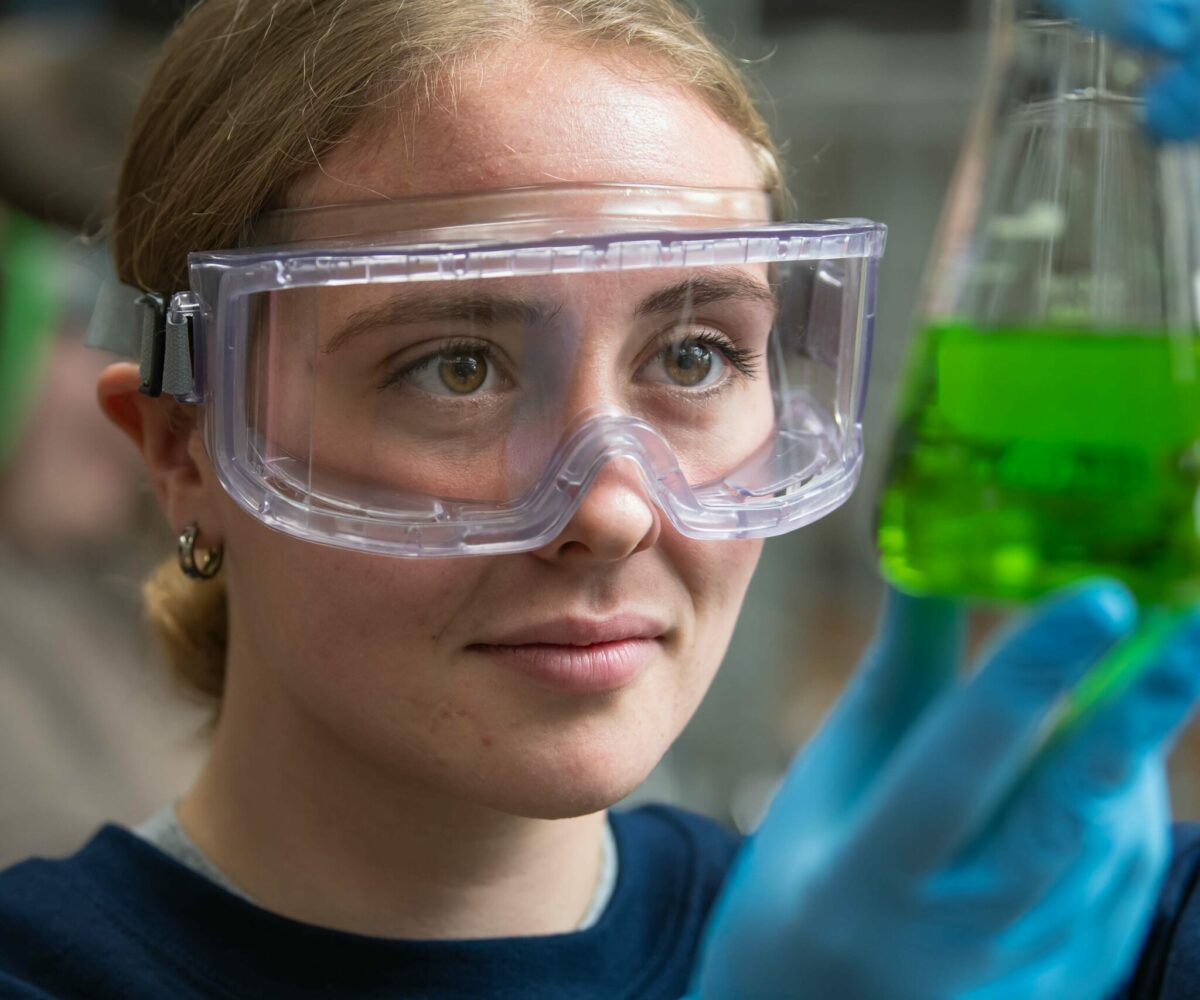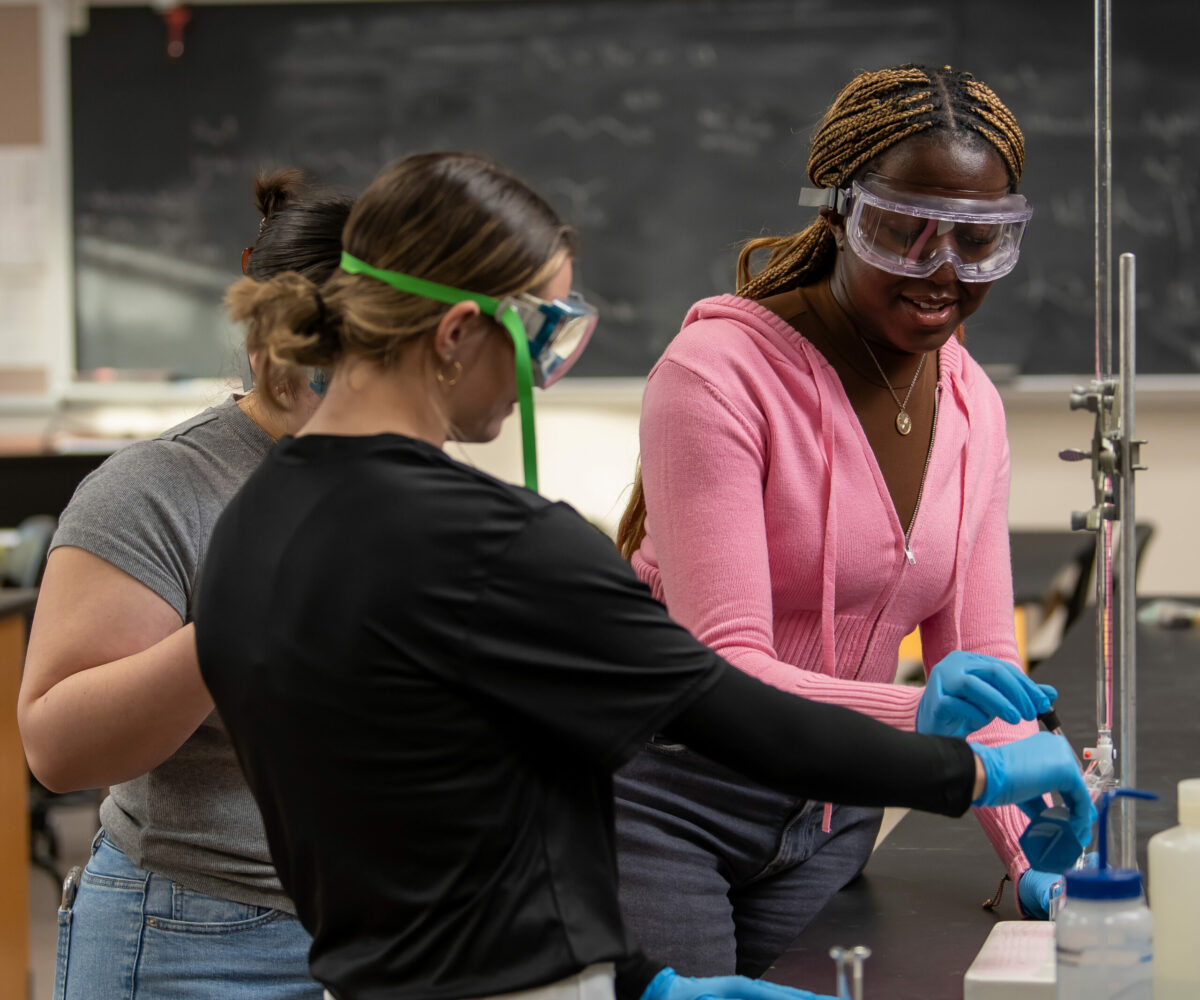
Professor of Chemistry
Cottey offers a minor in chemistry.
Chemistry is known as the central science. It’s the study of matter and its transformations. Research and study in chemistry connects a variety of other fields, such as biology, physics, geology, environmental science, engineering, materials science, medicine and more. The minor in chemistry is designed to provide students with a broad introduction to the main thrusts of modern chemistry – general, organic, bio and physical/analytical chemistry.
Our chemistry minor will provide students with the knowledge and experiences necessary to enter laboratory/research-based careers in a variety of scientific disciplines, including healthcare, environmental science, biochemistry, pharmaceutical and chemical engineering. The chemistry minor at Cottey will also help students prepare for admission into post-graduate programs in chemistry.
Presents basic chemical principles that are the foundation for future chemistry and related courses. The first semester course emphasizes atomic and molecular structure; stoichiometry; properties of solids, liquids, and gases; acid-base theory and solutions.
The second semester course (CHE 212, General Chemistry 2) emphasizes chemical thermodynamics and equilibria, electrochemistry, kinetics and mechanisms of chemical reactions, and the relationship of structure to physical and chemical properties.
This course presents the foundations of organic chemistry.
The first semester emphasizes structure, bonding, conformations, stereochemistry, thermodynamics, kinetics and reactivity, including acid-base and nucleophilic substitution reactions. Includes mass spectrometry and UV-visible, infrared, and nuclear magnetic resonance spectroscopy.
The second semester (CHE 322, Organic Chemistry 2) emphasizes increasingly complex organic reactions, including nucleophilic addition and substitution, carbon-carbon bond forming, and radical and redox reactions with applications to biological molecules.
The lecture portion presents equilibria, volumetric and gravimetric techniques, spectrophotometry, electrochemistry, and chromatographic/separation techniques important to analytical chemistry.
The laboratory portion covers techniques/hands-on experience in quantitative analysis, including Titrimetry, Gravimetry, FT-IR spectroscopy, UV-Vis Spectroscopy, Flame Atomic Absorption Spectroscopy, Gas Chromatography, and basic volumetric methods. Six hours per week.
The first semester course introduces the basics of biochemistry, including the structure and function of biomolecules, enzyme kinetics, bioenergetics, and metabolic pathways.
The Advanced Biochemistry course (CHE 410, Biochemistry 2) covers the chemistry and function of biologically relevant macromolecules and small molecules and their implications in cellular function, physiology, signaling, and metabolism.
The chemistry minor at Cottey provides a substantial amount of hands-on/laboratory experience. Organic Chemistry and Quantitative Analysis laboratory courses are both six-hours per week, and our Biochemistry laboratory course is four-hours per week. These upper-level courses are all taught by professors who hold terminal degrees in their fields and have a student-to-professor ratio of approximately 6-1.
All these courses underscore modern aspects of chemistry with particular attention given to instrumentation, modern concepts, and technology, and include instruction on statistical data analysis methods. Additionally, courses offered by the chemistry department help fulfill requirements for our B.S. in health sciences, B.S. in biology, B.S. in criminology, B.S. in psychology and our B. A. in environmental studies programs.
THIS PROGRAM WILL BE FOR YOU IF…
Professor of Chemistry
Assistant Professor of Biology and Chemistry


